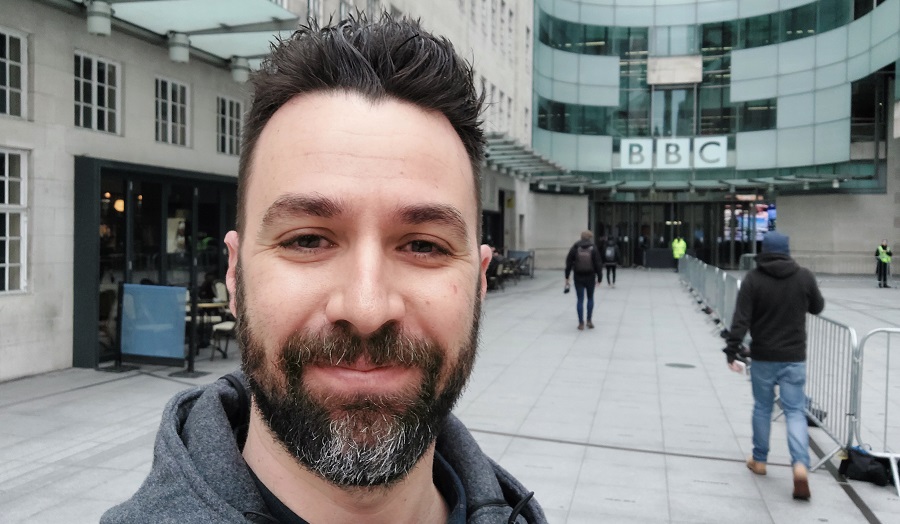Recent graduate Nikos Papanikolaou discusses how London Met's Journalism BA helped him land his first graduate staff job at the BBC.
Date: 10 January 2022
Three years ago, when I started studying on the Journalism BA course at London Metropolitan University, I hoped that I would eventually land a job in one of the biggest media outlets in the country. I didn't know when, but I wanted it more than anything else.
Three and a half years later, I'm about to start working for the BBC full-time as a staff Journalism Researcher. When I announced my new position to my friends, family and colleagues, they congratulated me and told me how lucky I was. But was it luck? Or was it a combination of hard work and persistence?
While I was still in my third year, I submitted an assignment in my Sports Journalism module about homophobia in British football. The assignment didn't go as well as I hoped, but little did I know that it would change my life.
Not long after, I pitched the same topic to the Greek investigative outlet, Reporters United, and I asked them if they would be interested in writing a similar and more lengthy piece about homophobia in Greek football. They were extremely interested, and the investigation was published three months later. The piece made me known to the journalistic world in Greece, as I touched on an issue nobody had written about in-depth before.
Fast forward to last summer; when I was in Greece for my summer holidays. It was the time when the country was suffering from wildfires. An English freelance photojournalist wanted a local journalist to help him create a human-centred story about the wildfires for the BBC.
Within hours, I could feel the ashes entering my lungs. I was there, on the field. For the next five days, we worked countless hours, testing our limits, but in the end, we managed to create a beautiful story about a shopkeeper who was fighting the fires.
Since then, I've worked with other media organisations – such as Deutsche Welle and TV2 from Denmark.
I'm not going to lie. Being on the field is entirely different from being in a classroom. Things are moving fast, and you need to make snap decisions. But, I will also tell you this. Everything I've learned during my three years at London Met was extremely valuable, from knowing how to interview people to being able to edit video files to becoming the editor of Verve magazine.
What helped me the most was the faith my tutors had in me. It's the faith you need when you're among experienced journalists in challenging circumstances. Everything you're learning at London Met will be helpful one day, even if you don't think it will be – like I did.
Lastly, getting a job in a media outlet like BBC is not about luck. It's about how well prepared you will be when you get the chance to do it. So, do your best while studying and take advantage of the safety a classroom provides to make mistakes. I wouldn't have got this job if it wasn't for my love for journalism and my tutors, who always pushed me to become better and better.

